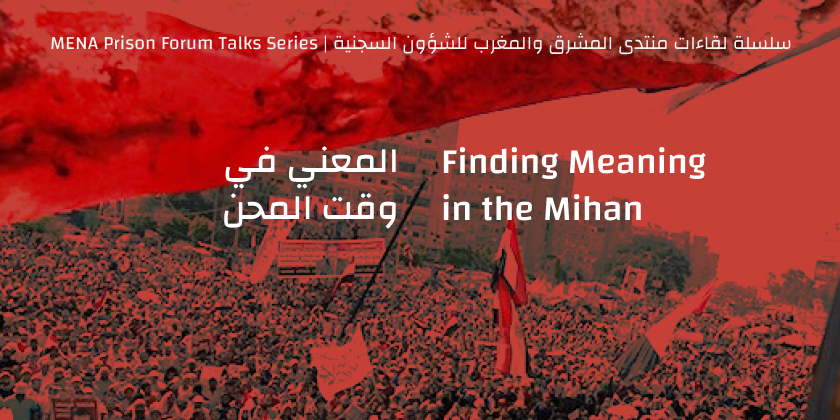
FINDING MEANING IN THE MIHAN
The State and the Islamists in the 20th Century in Egypt
Via Zoom
SEP 21, 2023
On 21 September 2023, the MENA Prison Forum hosted a conversation with Dr. Michael Farquhar on his upcoming project addressing how Islamist political activists have experienced and been affected by state violence. His research focuses on Egyptian state crackdowns on Muslim Brotherhood members in the late 1940s to 1970s, and places this period of violence in conversation with a wider set of theoretical debates about Islamists and state violence, throughout the MENA region and historical and contemporary periods. The dominant academic focus has been focused more on Islamist groups as actors of violence, not as targets, which is what Farquhar’s research aims to address.
In looking at political violence against Islamists in Egypt specifically, Farquhar notes that that political violence exercised by the state has been indiscriminate in targeting many sections of society, but has also specifically targeted Islamist movements over the years. His research contextualizes political violence against these groups in light of recent seminal types of violence, such as the Rabaa massacre in 2013 and the large incarceration of Islamists in recent years.
His research aims to add to and complicate existing theories used to explain the dynamics of group reactions to state policies, such as social movement theory and anthropology. However, Farquhar has identified shortcomings to these theories in capturing the interplay between political violence and Islamists groups, as they do not adequately take into account the religious underpinnings and guidance within these types of movements.
Farquhar has also noted a recent phenomenon of human rights approaches stopping short of being extended to the treatment of members of Islamist groups as part of securitization concerns, counter-terror policies, and overall dehumanization of members of Islamist groups.
The conversation subsequently allowed for an open Q&A session of suggested readings, approaches, and methods among Farquhar and the event participants.
Michael Farquhar completed his PhD in the Department of Government at the London School of Economics and Political Science. He also holds an MA in Near and Middle Eastern Studies from the School of Oriental and African Studies and a BA in Philosophy from the University of Cambridge. He has been an LSE Fellow and a Leverhulme Early Career Fellow in the Department of Politics and International Studies at SOAS.
He is currently undertaking research on the history and politics of policing in twentieth-century Egypt, with an eye to the ways in which discourses and practices of policing have been implicated in the maintenance and refashioning of social, political and economic order.
Michael Farquhar has also written on Saudi state-funded Islamic missionary work in the twentieth century, addressing themes of Salafism, Islamic education, religious transnationalism and religious economies. His book on this subject, Circuits of Faith: Migration, Education and the Wahhabi Mission (Stanford University Press, 2016), received an honourable mention in the International Studies Association's Religion and International Relations Book Award. It draws on research undertaken for his doctoral thesis, which received an honourable mention in the Middle East Studies Association Malcolm H. Kerr Award for Best Dissertation in the Social Sciences and won the Association for Gulf and Arabian Peninsula Studies Dissertation Award. His work has also appeared in the International Journal of Middle East Studies.